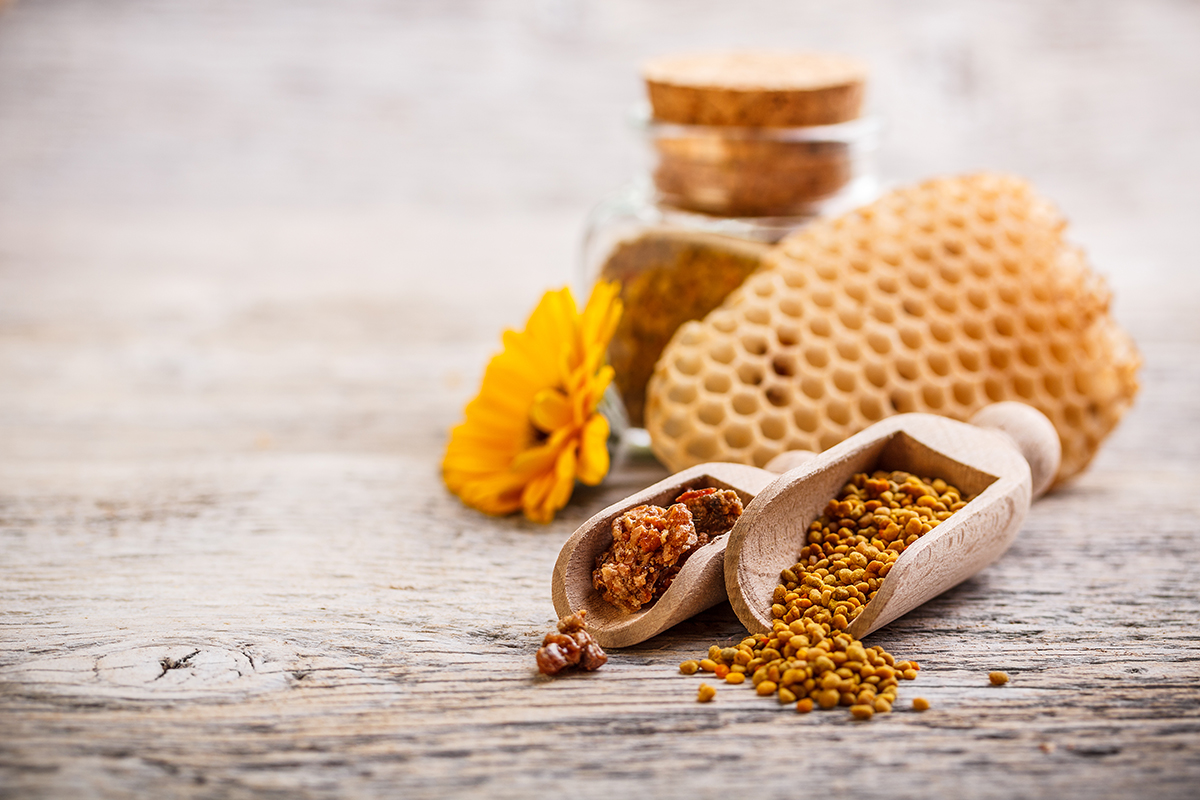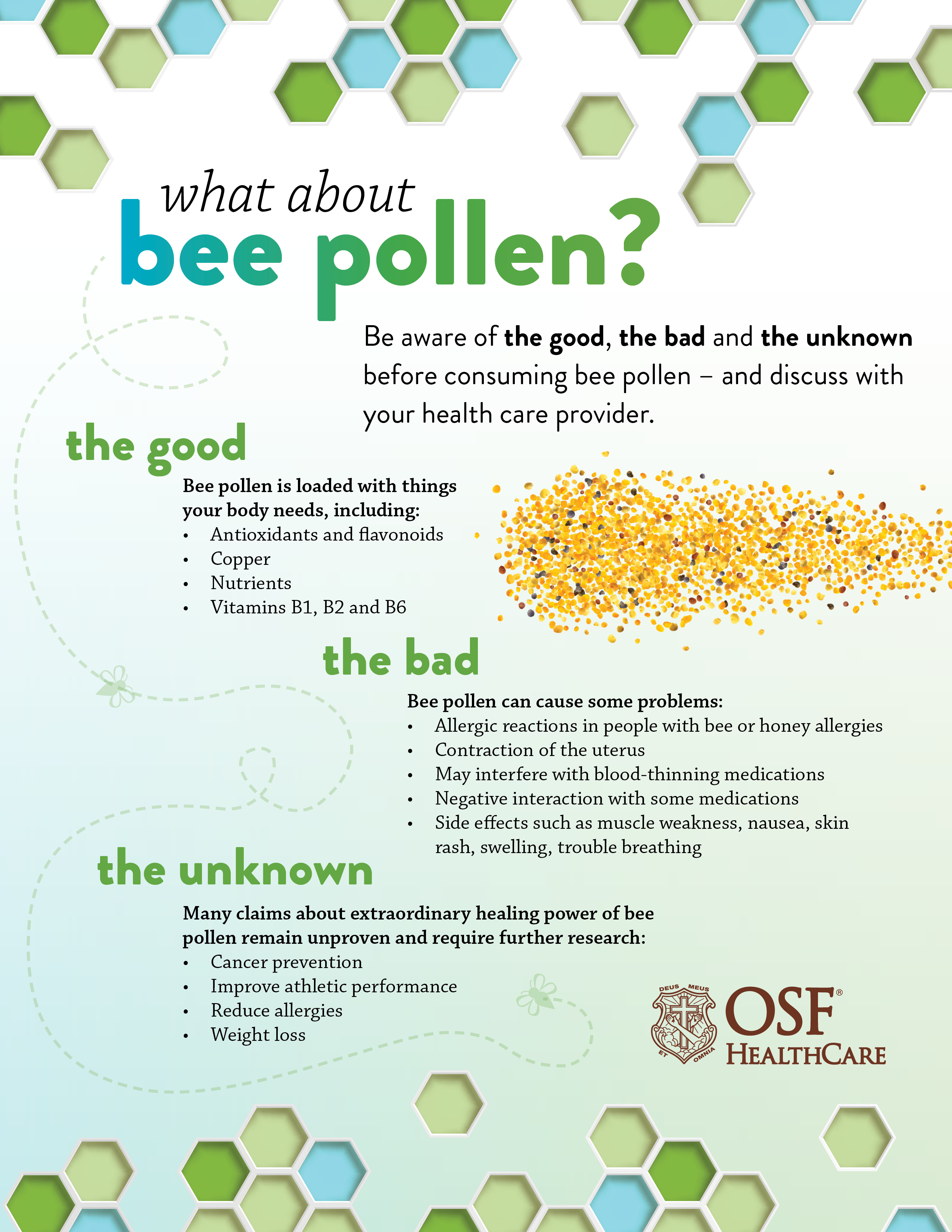
Uncertainties continue around use of bee pollen
In the eternal quest to discover the next “superfood,” bee pollen is gaining popularity.
Bee pollen is often marketed as an effective dietary supplement that has anti-inflammatory and antimicrobial properties. You also may hear that it prevents cancer, balances hormones, improves athletic performance, promotes weight loss and reduces allergies, among many other health claims.
Some of that is true. But some is false, and some remains uncertain. If you are considering using it, do your homework and discuss with your primary care provider.
What is bee pollen?
Bees collect pollen from plants and pack it in little “baskets” on their back legs. The bees then fill their hive with the pollen to feed their young.
Beekeepers harvest the pollen from bees by using traps attached to the hive opening. When the bees enter the hive, a small amount of pollen is knocked off their baskets and collected in a drawer underneath the hive.
The collected pollen is then dried and packaged to be sold as granules, powder or in pill form.
Bee pollen granules should be soaked for two to three hours before consuming them. Or grind the granules into powder and mix them with food such as yogurt, smoothies or honey.
Is bee pollen nutritious?
Bee pollen contains many nutrients. Over 200 substances are found in the pollen grains from different plant species. The amount of certain nutrients can vary, depending on the plant species from which the bees collected the pollen.
All three major nutrients (carbohydrates, protein and fat) and a wide variety of additional nutrients are found in bee pollen. Some of the nutrients include:
- Vitamins B1, B2 and B6, which all help your body turn food into energy
- Copper, which is needed for many processes in the body
- Flavonoids, compounds called antioxidants, which may decrease your risk for chronic diseases
What does the research say?
Most research of bee pollen is conducted on animals and in laboratories. Therefore, many of the actual effects on humans remain unknown.
One study looking at how bee pollen supplementation may affect athletic performance determined that it does not seem to improve athletic performance.
At this time, there is insufficient evidence to rate the effectiveness of claims that ingesting bee pollen prevents cancer, balances hormones, promotes weight loss or reduces allergies.
In fact, consuming it can be harmful to some people.
Is bee pollen safe?
There are some safety concerns to be aware of before eating bee pollen. More research is required to determine the full effects – positive or negative.
You should be aware of scientific concerns such as these:
- A literature review published in 2015 found that consumption could cause an allergic reaction in people with bee or honey allergies.
- It is recommended that pregnant and breastfeeding women do not consume it, as there is some concern it stimulates the uterus to contract.
- Babies under the age of 1 should avoid it, as there is no research studying the safety for this population group.
- Some evidence suggests that it may interfere with blood-thinning medications, so you shouldn’t take it if you are on this type of medication.
Bottom line
Bee pollen is an excellent source of a wide variety of nutrients. It is generally safe for most people when taken by mouth.
However, long-term use may cause serious side effects, including muscle weakness, nausea, numbness, skin rash, swelling or trouble breathing. Stop using and contact your provider if you experience such symptoms.
It also can interact with some medications, so always check with your provider before starting any supplements. And if you have allergies, are pregnant, breastfeeding or are under the age of 1, it would be best to avoid it due to safety concerns.
